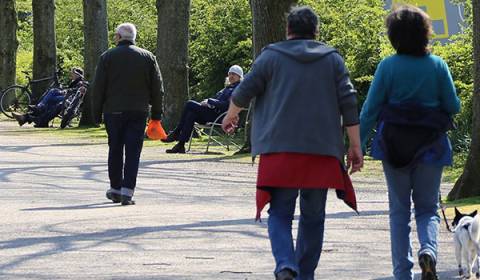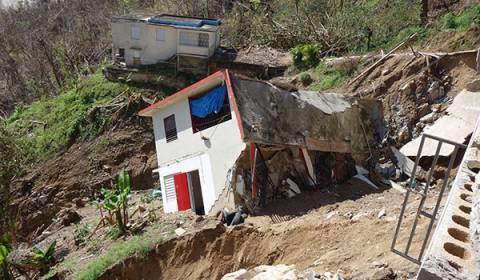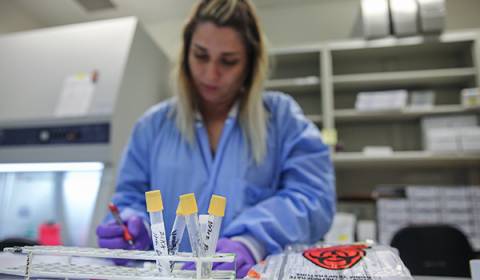Extreme Weather and Health / Our Work In Action
Applying Lessons Learned to Today's Extreme Weather and Health Challenges
When public health challenges arise, the CDC Foundation is poised to act quickly, support the development of national strategies, bolster local preparedness activities and bring together a diverse set of partners for meaningful change.
Along with the U.S. Centers for Disease Control and Prevention (CDC) and other public health partners, we are working to accelerate the nation’s capacity, preparedness and resilience against the health impacts of our changing climate. The highlights below include some of our previous work.

Community Capacity Assessment for Climate Health
As the climate warms, communities across the United States face increased threats from heat-related illnesses, waterborne diseases, shifts in vector-borne diseases and the physical and mental effects of extreme weather events. Though we all are at risk, under-resourced communities are the least equipped to meet these threats and are often among the first to be impacted. With the support of The Kresge Foundation and CDC, the CDC Foundation’s Community Capacity Assessment for Climate Health assessed 21 urban jurisdictions to understand their climate and health capacity and determine the best ways to help these communities address the adverse effects of today’s changing climate. The resulting report found that 57 percent, 12 of these communities, were highly vulnerable to the health-related climate impacts and detailed a list of best practices they can use to implement local climate and health programs. As these health challenges become more acute, identifying and addressing gaps in preparedness is key to saving lives.

Quickly Responding to the Public Health Challenges of Extreme Weather Events
In 2017, hurricanes Harvey, Irma and Maria devastated parts of the continental United States, Puerto Rico and the U.S. Virgin Islands (USVI). In the years since, powerful hurricanes have become a regular threat to many coastal residents. Thanks to our donors, the CDC Foundation was quick to respond with emergency relief and supplies after the devastating 2017 storms, providing food, batteries and generators to affected populations in Puerto Rico and assisting Puerto Rico-based CDC staff as they aided in the response. With lab capacity in Puerto Rico disrupted by the storm, the CDC Foundation covered the costs for critical lab samples to be shipped from the island to the mainland for testing. In USVI, the CDC Foundation supported health communication efforts to provide local residents with vital information on navigating health challenges in the wake of the storms. As a close partner of both CDC and local, state and other federal health agencies on the ground, the CDC Foundation is uniquely positioned to address critical health threats quickly in the wake of extreme weather, like hurricanes and other disasters.

Protecting Communities from Zika and the Increased Risk of Mosquito-borne Diseases
While the public health community has long faced challenges reducing illness and death from mosquito-borne diseases like dengue and malaria, never before has a mosquito-borne virus been associated with a catastrophic birth defect or with sexual transmission. The effects of brain damage due to microcephaly and the consequences of other Zika-related birth defects are devastating, lifelong and costly. Currently there is no vaccine available to prevent Zika and no treatments available for those who do become infected. Because the virus can be passed from a pregnant woman to her fetus, prevention efforts have been focused on short-term contraceptive options so women can avoid pregnancy during Zika outbreaks. Today, the risks posed by mosquito-borne diseases are increasing. Actionable prevention information—coupled with an initial supply of prevention tools—is key to keeping pregnant women and their babies healthy. The CDC Foundation undertook a number of efforts to support women at risk and expand public health capacity to help address Zika in U.S. territories during the height of the Zika outbreak in 2016–2017.
HOW YOU CAN HELP
The CDC Foundation is actively seeking partners to join with us to make an impact. Connect with us to learn more about our vision for new partnerships and programming and how you can play a role in ensuring a healthy future for our communities. Learn more: Contact Advancement at the CDC Foundation: advancement@cdcfoundation.org, 404.653.0790.
If you would like to have an immediate impact, give today to help us accelerate our nation's capacity, preparedness and resilience to extreme weather events, changing air quality and other national and local health challenges brought on by our changing climate. Donate Now
